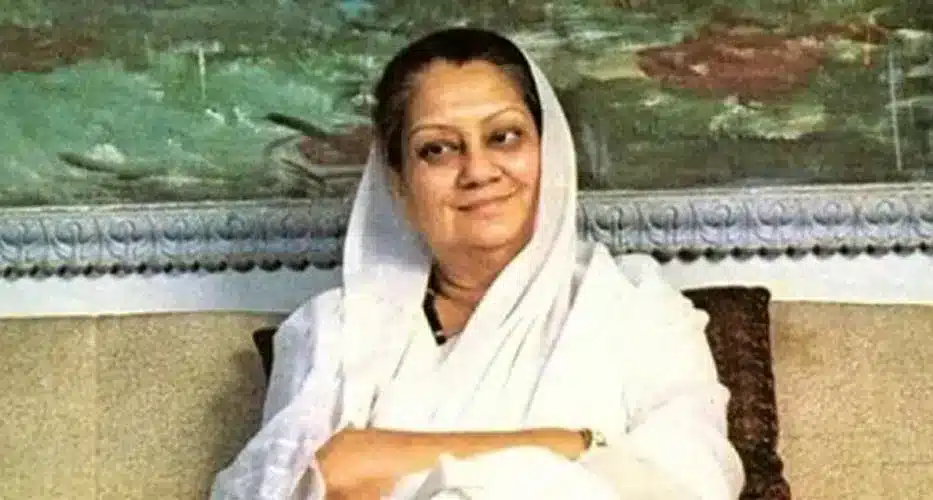Vijaya Raje Scindia: The Iron Lady of Indian Politics

Vijaya Raje Scindia (12 October 1919 – 25 January 2001), born Lekha Divyeshwari Devi and known popularly as the Rajmata of Gwalior, was a prominent Indian political personality. In the days of the British Raj, as the consort of the last ruling Maharaja of Gwalior, Jivajirao Scindia, she ranked among the highest royal figures of the land. In later life, she became a politician of considerable influence and was twice elected to both houses of the Indian parliament. She was a member of the Bharatiya Janata Party.
Life and Career
Vijaya Raje Scindia was born in 1919 at Sagar in present-day Madhya Pradesh, the eldest child of Thakur Mahendra Singh of Kotla State (U.P.), a government officer, by his second wife, Chuda Devashwari Devi. She was named Lekha Divyeshwari Devi at birth. Her father was a deputy collector in the provincial administration. Her mother was the daughter of former Commander-in-chief of the Nepalese Army Commanding-General Raja Khadga Shamsher Jang Bahadur Rana, the nephew of the founder of Rana dynasty of Nepal, Jang Bahadur Kunwar Rana. She died at Vijaya Raje’s birth. Her brother is Dhyanendra Singh, the husband of Maya Singh.
In February 1941, at the age of 22, Lekha was married to Jivajirao Scindia, Maharaja of Gwalior, one of the largest, richest and highest-ranking princely states in India.
Political life
Vijayaraje entered electoral politics in 1957 when she contested and won the Guna Lok Sabha seat in Madhya Pradesh on a Congress ticket. Five years later, she won the election for Gwalior on a Congress ticket. In 1967, she left the Congress party and ran on the ticket of the Swatantra Party for the Guna seat. She soon joined Bharatiya Jan Sangh and resigned from LokSabha to take part in state politics.
In 1967, she won the Karera assembly seat in Madhya Pradesh as a candidate for the Jan Sangh and plunged headlong into state politics. Amidst the Indira wave in 1971, the Jan Sangh won 3 seats in the Gwalior region: Vijaya Raje Scindia from Bhind, Vajpayee from Gwalior, and Madhavrao Scindia from Guna, though he later left the party. She was imprisoned by Indira Gandhi during the Emergency, ultimately sharing a cell with fellow Rajmata and MP, Gayatri Devi. During the 1970s, Vijayraje and her son Madhavrao engaged in a public property dispute. Their differing political ideologies contributed to their animosity.
As one of the BJP’s vice presidents in 1980, Vijayaraje came to the forefront of its leadership. She was considered a hardliner and played a key role in popularizing the Ram Janmabhoomi movement. Following the demolition of the Babri Masjid in December 1992, she had declared that “she could now die without any regret, for she had seen her dream come true.” She remained a BJP vice-president until 1998 when she stepped down on health grounds and quit electoral politics. In January 2001, she passed away.
Observer Voice is the one stop site for National, International news, Sports, Editor’s Choice, Art/culture contents, Quotes and much more. We also cover historical contents. Historical contents includes World History, Indian History, and what happened today. The website also covers Entertainment across the India and World.

